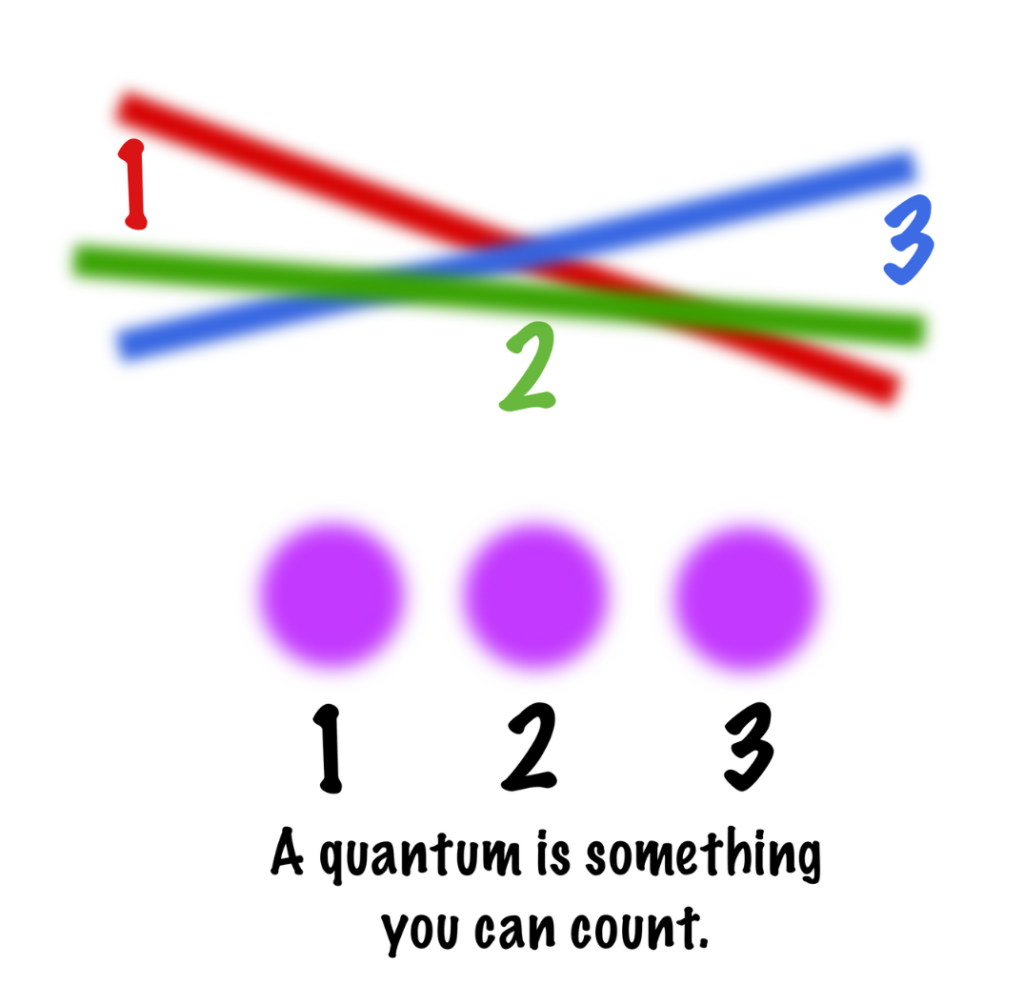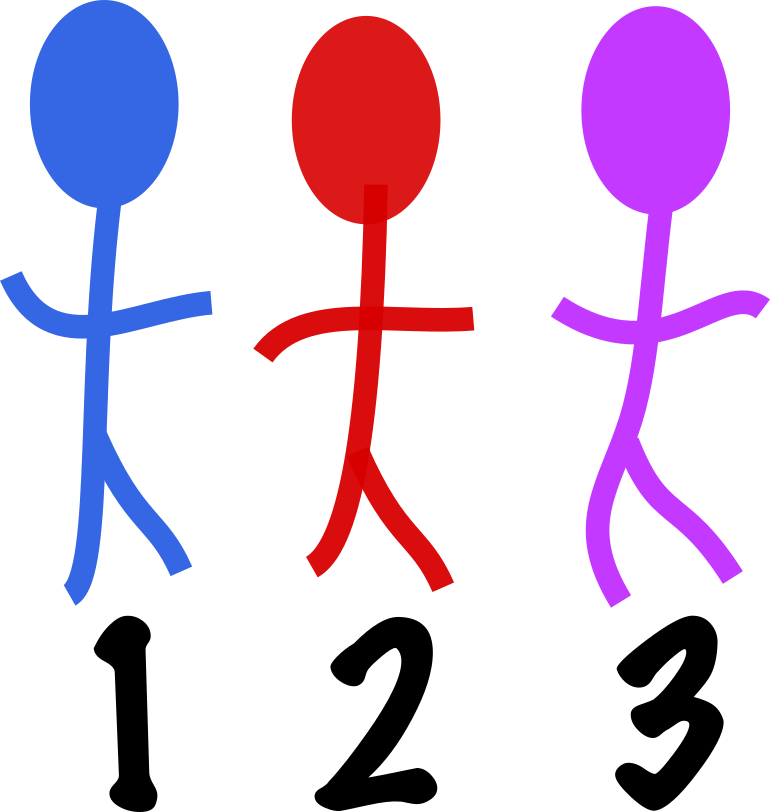What Does “Quantum” Mean?

2025 is The International Year of Quantum Science and Technology. Let’s start by asking what does this word “quantum” mean?

That’s a good starting question. In general, the word “quantum” means “something you can count.” It’s from a Latin word and is the same root as is found in words like “quantity” and “quantify.” A “quantum” is a single thing you can count and the plural “quanta” are things you can count. The question is: When you look at something, is it possible to count it?


Can you give an example?

Sure. If we looked at a stadium crowd and I said, “count the crowd,” how would you understand this request?

Well, I would assume you meant count the people in the crowd.

Exactly. In this case, the quanta – the things you are counting – would be people. Similarly, if we looked at a beach and I said, “count the sand” what would you think I mean?

I guess I would think you meant counting the grains of sand – but this sounds very difficult!

It would be! The point is not whether we can actually find the number, but whether there is something we can count at all. In this case, a quantum of sand is a grain of sand. But now let me ask a trickier question, if we were on the beach and looked out at the water and I said, “count the water” what do I mean?

Maybe how many liters of water?

It’s less clear of a request, isn’t it? In the case of liters, we can always develop some agreed upon unit of measure like this with which to count things. When I asked about counting sand, you could have interpreted this to mean counting the number of liters of sand or kilograms of sand. But these units of measure are a bit arbitrary, instead of liters or kilograms, one could count in gallons or pounds or tons. They’re agreed-upon conventions that could be changed. A quantum means something less arbitrary, an indivisible thing to count that wouldn’t depend on an arbitrary measurement standard.

Then for counting water, would you mean counting the molecules of water?

Yes, a molecule of water would be a more appropriate quantum of water. It’s the smallest, indivisible unit of water that you could have. Of course, it would be even more challenging to count molecules of water than grains of sand.

You can’t even see the water molecules to count them!

Precisely, and this gets us closer to understanding how the word quantum is being used in the phrase “quantum science.” From our perspective, the water looks continuous, as though you could keep dividing it into smaller and smaller drops. It’s not at all obvious that there is the smallest piece of water. The word quantum started being used by scientists to refer to a few cases where it looked as though something was continuous or infinitely dividable, but it turned out that there is something countable about it.

Is the fact that water is made up of countable water molecules, or that things more generally are made up of atoms that we could count, an example of quantum science?

Surprisingly, no. The idea that things are made of atoms is one that goes back thousands of years, and the modern understanding that there are different chemical elements, each with their own type of atom, is around 200 years old. These are very important ideas and they do make a claim about matter being made up of countable pieces, but they are not the quanta that are being referred to in quantum science. This is a rather confusing point, since it is the case that quantum science is widely used to understand details about atoms and molecules, but it’s not the case that the word “quantum” in this context refers to the fact that atoms and molecules are countable things. Rather, the word quantum started being used a bit over 100 years ago to refer to other cases where things that seemed continuous or infinitely dividable turned out to have a countable aspect to them.
Written by Paul Cadden-Zimansky, Associate Professor of Physics at Bard College and a Global Coordinator of IYQ.
IYQ mascot, Quinnie, was created by Jorge Cham, aka PHD Comics, in collaboration with Physics Magazine.
All rights reserved.
Featured image: Yan Krukau.
For general questions about IYQ, please contact info@quantum2025.org. For press inquiries, contact iyq2025@hkamarcom.com.




